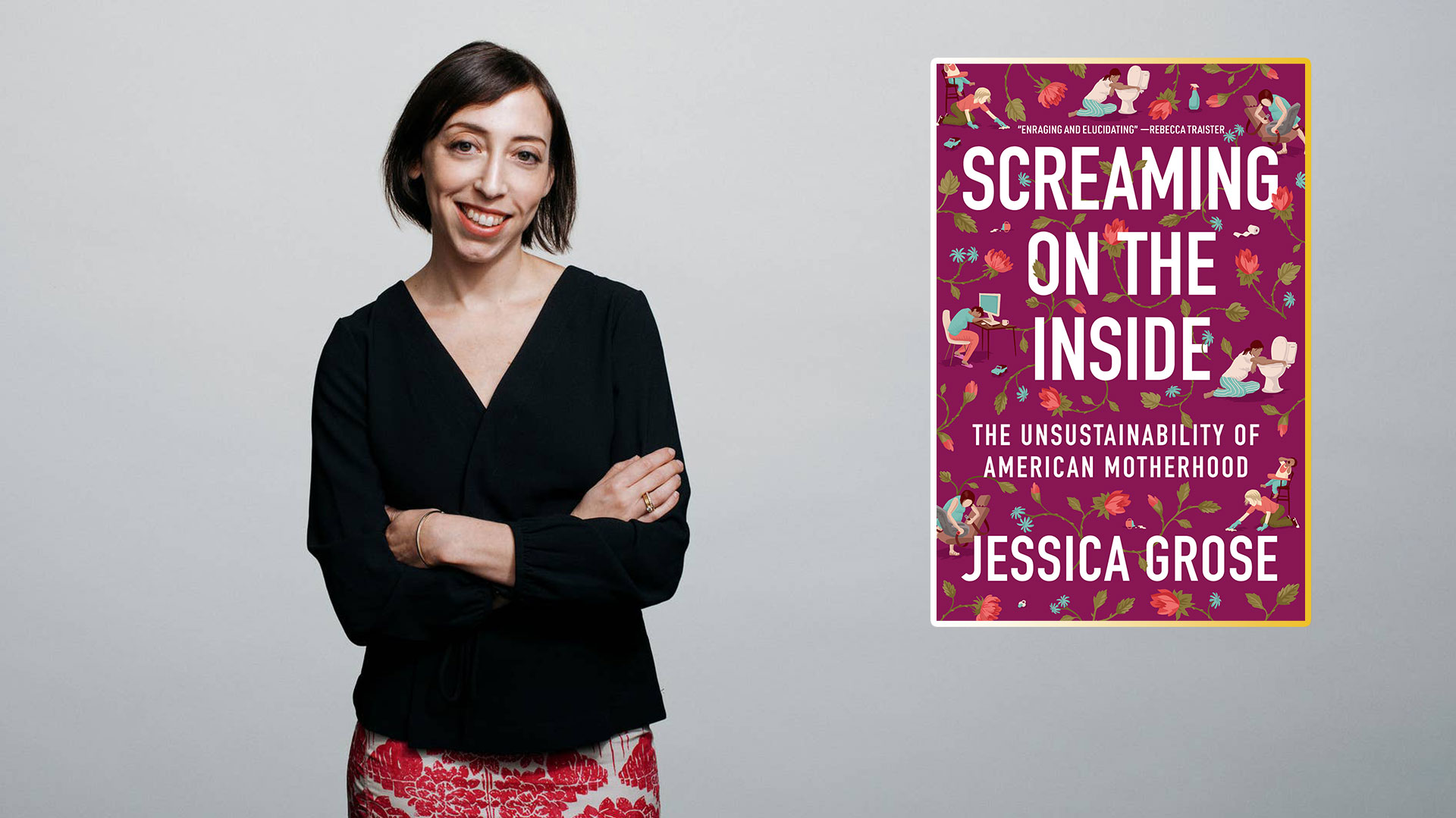"Screaming inside", or why motherhood is unsustainable (if things don't change)

On her second day on the job, American journalist and writer Jessica Grose found out she was pregnant. Within a week, she was vomiting uncontrollably. As she had stopped taking antidepressants to conceive, she was soon consumed by dark thoughts. Her status as her new employee prevented her from enjoying unpaid parental leave. She had enjoyed many privileges-white, with a stable marriage, no debt-but given her health, how was she going to work? How could she work herself?
Short answer: Grose left him. But he picked up his career after the birth and, a decade later, he writes a Parenting column and newsletter for The New York Times. Grose, who wrote two novels before having her two daughters, is now the author of a new book, Screaming on the Inside: The Unsustainability of American Motherhood.
If there is a common thread in the newsletter and in Grose's latest book, it is that too much is asked of American mothers. “In our time, the perfect mother is a woman who seamlessly blends work, comfort, and home,” she writes. “She is usually blonde and skinny. She never shows her roots, and she installed that gleaming kitchen backsplash herself.” She keeps her boss and her children happy at all times and she is on top of everything. Also, she gets up at 5 in the morning to meditate.
It is undoubtedly too high a bar, although it is also very specific. Grose tries to widen her lens to capture the experiences of many different types of mothers. She tries to unravel inordinate ideals of motherhood in various circumstances and examine how they took hold. The book is part memoir, part history lesson, part sociological study, part parenting advice guide, and part call to action. In other words, like most moms, Grose tries to do more than is humanly possible.
The most compelling material comes from Grose's interviews with dozens of women at the height of the coronavirus pandemic. Although these stories are tied to unusual circumstances, they illustrate deeper issues facing mothers in the United States. Grose tells, for example, the story of a woman who had a "secret baby" that she never talked about with her boss because he was worried she would be fired from a big project. A Georgia fast food restaurant worker recounts the saga of having to ask permission for her 11-year-old son to be able to drive to school remotely from the restaurant lobby. And there's the single mother who waited a year to enroll her child in daycare, which closed permanently during the pandemic, forcing her to find a place elsewhere.
Grose demonstrates that, even before the pandemic, mothers - especially those belonging to minorities - moved in a world without adequate services or safeguards. He points to common work practices such as “opening” shifts, in which an employee must close a business late at night and reopen it first thing the next morning, and “just-in-time” schedules, which involve that employees do not have fixed and predictable hours. This is not compatible with the few childcare options that exist. If we add a pandemic to the mix, “Everything falls apart” (title of chapter 6).
It is a pity, then, that Grose undermines this valuable research with distracting anecdotes from his own life. For example, of her understandable decision to give up breastfeeding, she explains: "I was reminded of the many books I had read about Queen Victoria and her wayward son, the future King Edward, which hinted that their relationship was damaged from the start, in partly because nursing him made him feel 'insurmountable disgust'”. I guess that's a baggage most moms aren't struggling with. At least it's a little more understandable than her complaints about feeling “less than empowered” as editor-in-chief of a fledgling feminist newsletter while she was pregnant with her second child.
Grose also tends to make long digressions. A chapter on social media dives into a detailed history of blogging by moms who obsess over the enormous influence of members of the Church of Jesus Christ of Latter-day Saints and the "sponcon" (also known as sponsored content). ). Apparently, it's not easy to make money from posts unless you have a perfect look and false eyelashes. Of course. But also, who cares?
Many of Grose's ideas about "ideal" motherhood don't ring a bell to me, even as someone who fits almost exactly his demographic profile. Every mother has her own perceived insecurities and flaws. What is truly universal is the need to be kinder to ourselves and other mothers. In his conclusion, Grose encourages readers to stop trying to live up to some fanciful and absurd standard, and to channel that energy into fixing the structural problems that hurt so many families. We need to shout outward for a more practical ideal: paid leave and quality, affordable childcare for all.
Source: The Washington Post
Keep reading:
For example, of her understandable decision to give up breastfeeding, she explains: "I was reminded of the many books I had read about Queen Victoria and her wayward son, the future King Edward, which hinted that their relationship was damaged from the start, in partly because nursing him made him feel 'insurmountable disgust'”.
Post a Comment for ""Screaming inside", or why motherhood is unsustainable (if things don't change)"